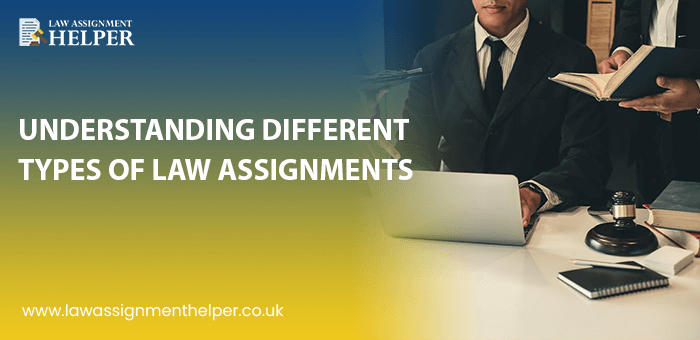Overview
Throughout legal education, students encounter a variety of assignments. These assignments are meant to develop an understanding of the law and improve their analytical, research, and writing skills. The different assignments enhance this understanding in different ways and pose various challenges. Therefore, the following blog post discusses the most common types of law assignments, allowing potential law students to prepare more effectively for the road ahead.
1. Case Briefs
Case briefs may be considered some of the all-time necessities in law schools. They always involve students in summarizing and analyzing court opinions to boil down the relevant facts, issues, rationale of the court, and the court’s final decision. The objective is to cut long and detailed decisions down to short, readable elements. Case briefs in this realm are helpful to students in extracting pertinent information and understanding the application of legal principles.
2. Research Papers
The research papers that one does in law school are strict. These research papers are based strictly on the law, meaning one must conduct comprehensive research on the issue and think critically. This may take the student through several legal databases, journals, and other scholarly sources that may help support an argument or conduct a thorough examination of a legal issue. Such writing not only hones one’s research skills but also enhances one’s capacity to argue logically and persuasively.
3. Essays
Legal essays attempt to dissect questions by applying legal theories or principles. Writing one may not require much external research, but at the same time, the need lies in the understanding, which must be applied to the law and its usage. An essay tests the ability of a student to think critically and bring out his thoughts coherently and concisely.
4. Problem Questions
Problem questions are practical exercises of applying learned knowledge to hypothetical situations. They reproduce realistic circumstances that lawyers can face and require the application of law to describe facts very precisely. Such a task is a really good development for such a skill as problem-solving and the ability to compose clear legal advice in potentially complicated situations.
5. Policy Papers
For students interested in the impact of law on society, policy papers offer a chance to evaluate how legal frameworks influence public policy. These papers require a blend of legal analysis and policy understanding and may involve recommending changes to existing laws or proposing new legislation.
6. Moot Court Competitions
Not exactly considered an assignment, but moot court competitions are integral part of legal education. Students in moot courts can compete within the context of simulated court proceedings, with the majority of them drafting briefs and participating in oral arguments. The moot court experience, including means of practice, is invaluable for applying rhetorical and analytical skills in competitive and highly structured settings. To get deeper understanding of Moot Court Competitions visit Law Assignment Helper UK.
8. Reflective Journals
Reflective journals may be introduced in some courses within law. It gives students a reflection of their learning process, personal response to legal issues, performance, and strategies. The journals would facilitate self-assessment and continuous personal development.
9. Legislative Analysis
This kind of assignment can help students develop much more in-depth insight into the legislation under consideration and its implications, background, and legal framework. A more complex task is to compare the legislation across jurisdictions. This enables a better understanding of how social needs and political settings guide the laws.
10. Client Interviewing Exercises
These exercises imitate the experience of meeting and advising a client. They are mostly done in the form of role-plays with peers or actors. Such assignments teach interpersonal skills to ask questions, offer understandable legal advice, and manage client expectations.
11. Seminar Papers
The seminar papers normally form part of the curriculum in higher-level law courses oriented towards special subjects. They can be relatively long and quite detailed compared to regular essays. They are normally presented to fellow students during seminar sessions. The task demands deep knowledge of the specific legal area and, at the same time, requires skills in oral presentation and debate.
Conclusion
Each of these assignments offers law students an opportunity to practice the different facets of the legal profession, from the meticulous nature of legal drafting to the strategic thinking required in moot court. In light of these interests and challenges, which the assignments assume, students appreciate their legal education and diverse preparation for professional demands in their future careers.
